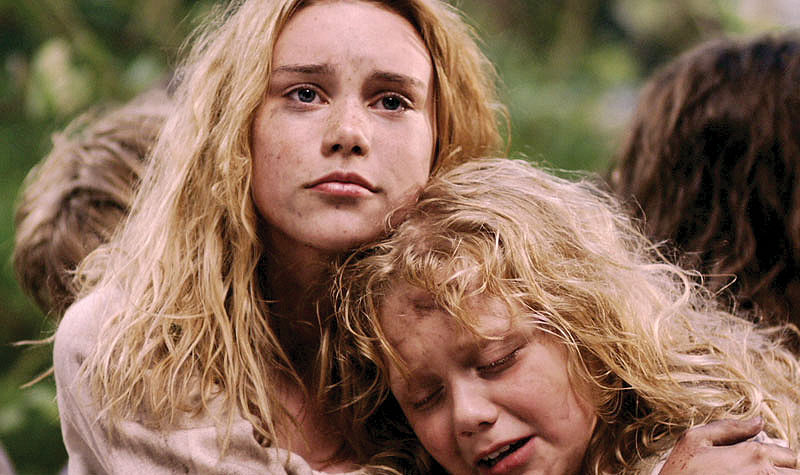The movie, “Alone Yet Not Alone,” an historical drama based on the true story of how faith sustained two immigrant sisters’ lives after their capture by Delaware Indians during the French and Indian War, opens in selected theatres nationwide this week.
George Escobar, the film’s co-director/co-writer/producer, told The Tidings in a phone interview last week that there were a lot of miracles in getting the movie to the screen. One miracle was finding authentic-looking locations representing America in 1755, when 12-year-old Barbara and 9-year-old Regina Leininger were captured by Indians who attacked their family’s cabin in the woods of Pennsylvania.
Their father, a devout Lutheran killed in the attack, raised his children to have faith that God would never forsake them. The movie is based on a novel by Tracy Leininger Craven, who first heard about Barbara and Regina from her grandmother, who had learned about the girls’ capture while researching family history. Barbara and Regina were transported over 300 miles by the Indians to the wilds of Ohio, where they were separated and, nearly a decade later, reunited following a treaty between the Indians and the settlers.
“Trying to recreate the frontier in Ohio and Pennsylvania posed difficulties,” said Escobar. Explore Park, a living history museum in Virginia, provided the location for the family cabin, which was built from scratch. Fort Loudoun, in Tennessee, was the site used to depict the fort to which Barbara escaped after five years in captivity with a couple of young fellow captives.
“Alone Yet Not Alone” gained notoriety last year when its theme song of the same name received a “Best Original Song” Oscar nomination that was later rescinded, because Academy officials said the song’s co-author violated the rules by emailing fellow members of the Academy’s music branch asking them to give it a listen, giving “the appearance of an unfair advantage.”
Song co-author Bruce Broughton said in his defense that he just didn’t want the song to be bypassed, and that he didn’t ask for anyone to vote for the song.
The original song, which represents the long-lost bedtime hymn sung by Barbara and Regina’s mother, is performed by Joni Eareckson Tada, a 64-year-old Christian author/singer/radio host who became a quadriplegic due to a teenage diving accident.
“It was a miracle when the song was nominated for an Oscar, and then another miracle when the nomination was rescinded, because the [controversy] caused many people to become aware of it and listen to it,” said Escobar.
He considers Tada’s participation another miracle, which came together when the film’s executives met the singer a few years ago at the National Religious Broadcasters Association conference, and invited her to record the song for the film.
“After she heard the story, she said ‘yes’ and did a wonderful job,” said Escobar.
People need to see this film, said Escobar, not just for the story, “but the fact that it sends a message that we want more movies like this. It’s one of those rare movies that an entire family can watch together — there’s nothing graphic in it.”
Moreover, he added, “I think what people will come away with is that God is real, and we as parents need to [instill faith] in our children so that they will remember that God will never leave us or forsake us. The movie hangs on this.”
Locally, “Alone Yet Not Alone” opens June 13 at the Rolling Hills 20 Theater in Torrance. According to the film’s producers, Enthuse Entertainment, more theaters are being added everyday through Seatzy. An up-to-date list of locations is available at http://aloneyetnotalone.com/tickets

